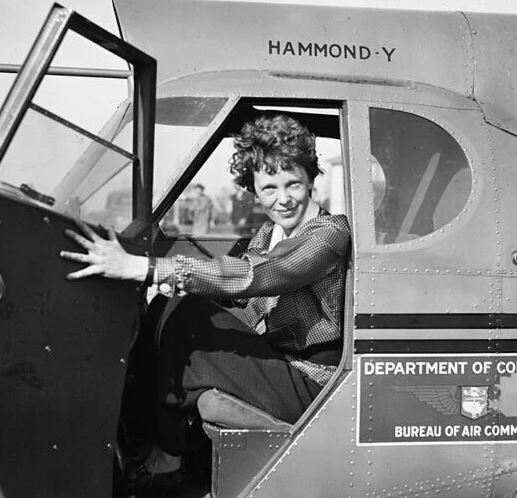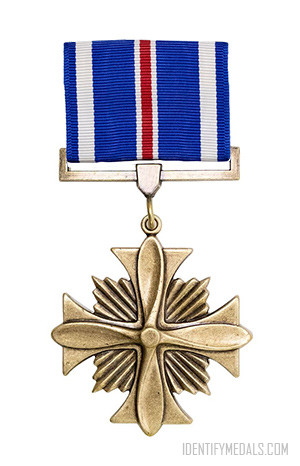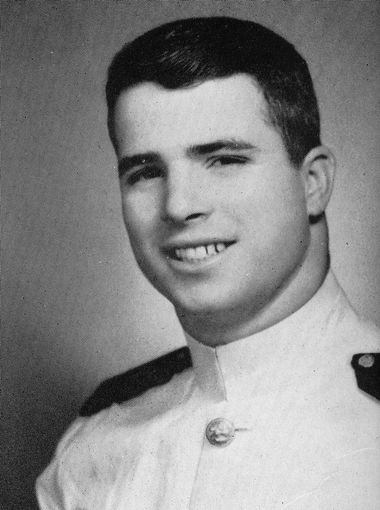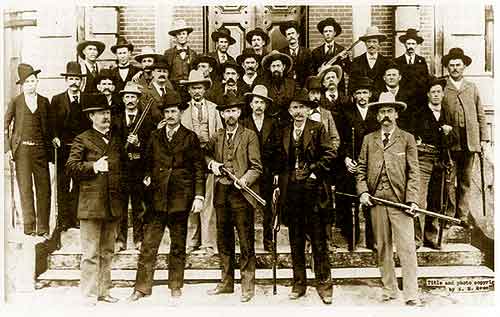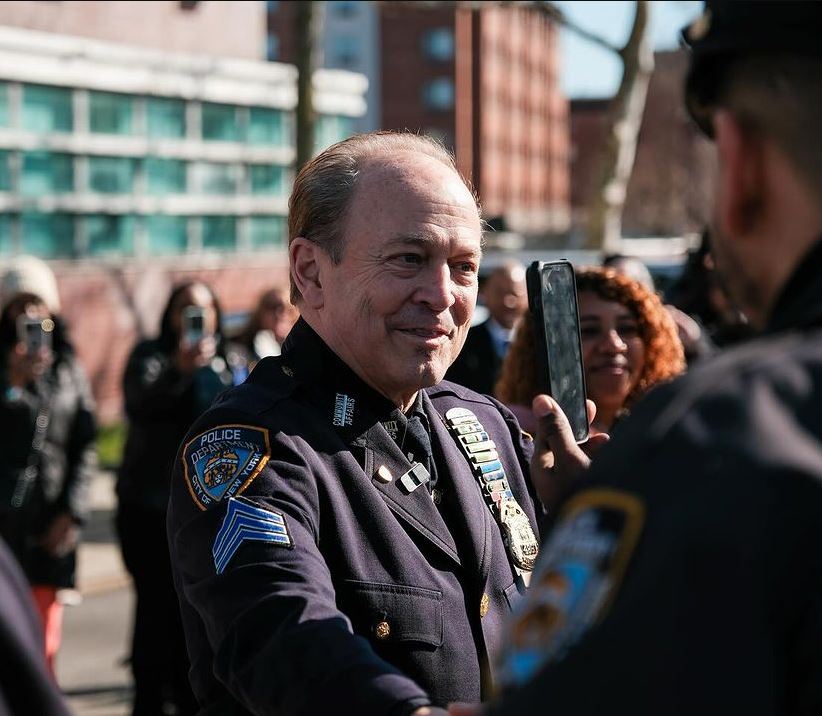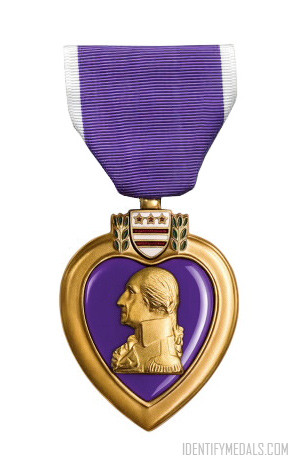Amelia Earhart (1897–1937) was an American aviation pioneer, author, and advocate for women’s rights. She is also one of the most celebrated and enigmatic figures in the history of aviation and remains a symbol of courage, determination, and breaking barriers. But did you know she was awarded the Distinguished Flying Cross (DFC)?
The cross is traditionally a military decoration. Amelia Earhart, though, was a civilian pilot, and not a member of the armed forces… which makes her receipt of the award even more remarkable and significant! So, let’s learn about her exceptional contributions to aviation, including her famous solo transatlantic flight in 1932.
A Quick View: Who Was Amelia Earhart?
Amelia Earhart’s life story is a testament to her adventurous spirit and pioneering contributions to aviation and women’s equality. She gained international fame as the first woman to fly solo across the Atlantic in 1932. Earhart set numerous other aviation records, too, co-founded the Ninety-Nines to support women pilots, and tirelessly promoted gender equality in aviation. In 1937, she vanished during an attempt to fly around the world, leaving behind a legacy of courage, innovation, and inspiration that continues to resonate.
- She was the first woman to fly solo across the Atlantic (1932). She flew from Newfoundland to Ireland in 14 hours, battling mechanical issues and severe weather.
- She also became the first woman to fly solo nonstop across the United States in 1932.
- She worked tirelessly to promote women in aviation, co-founding the Ninety-Nines 🔗, an organization for female pilots, and advocated for breaking gender barriers in the male-dominated field of aviation.
In 1937, Earhart attempted to become the first person to fly around the world along the equator. On July 2, 1937, during a leg of the journey from New Guinea to Howland Island, she and her navigator, Fred Noonan, vanished. Despite extensive search efforts, they were never found, and her disappearance remains one of the greatest unsolved mysteries of the 20th century.
Amelia Earhart's Distinguished Flying Cross
Earhart received the Distinguished Flying Cross in recognition of her 1932 solo transatlantic flight. This accomplishment was not only a testament to her individual courage and skill but also a pivotal moment in aviation history, demonstrating that women were equally capable of achieving remarkable feats in flight. The award symbolized broader societal shifts toward recognizing women’s capabilities in traditionally male-dominated fields.
The DFC is typically awarded to members of the U.S. military for “heroism or extraordinary achievement while participating in an aerial flight.” It was established in 1926 and is usually conferred on service members demonstrating exceptional courage or accomplishment in combat or non-combat aviation missions.
Amelia Earhart was a civilian pilot, not a member of the armed forces. For her to be honored with an award primarily given to military aviators underscored the extraordinary nature of her achievement. Her solo transatlantic flight in 1932 was considered comparable in courage, skill, and impact to the feats of military aviators.
Awarding the DFC to Earhart showed that the U.S. government recognized exceptional contributions to aviation even from outside the military. It set a precedent that aviation excellence could transcend military boundaries, elevating civilian aviation pioneers to similar levels of recognition.
Earhart’s flight and subsequent recognition helped solidify her as a prominent figure in the promotion of aviation. Her public persona and accomplishments contributed to raising awareness of the potential of air travel and the importance of the aviation industry during its early development.
In the 1920s and 1930s, aviation was still a relatively new field. Recognizing a civilian like Earhart with a military honor bridged the gap between military and civilian aviators, fostering a sense of shared progress and achievement in advancing the possibilities of flight.
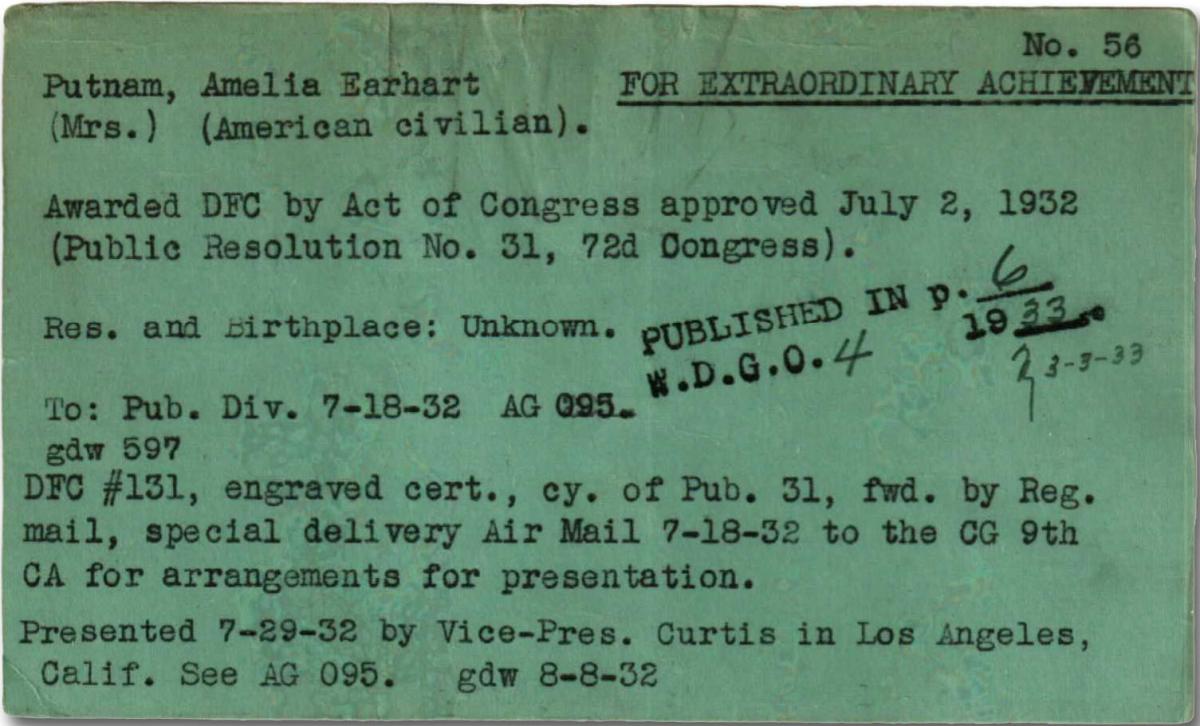
Message on Earhart's Presentation
[Released July 29, 1932. Dated July 22, 1932]
My dear Miss Earhart:
The Vice President has been requested to represent me in presenting to you the Distinguished Flying Cross authorized by the Congress in a Joint Resolution which was approved on July 2nd, 1932.
At the presentation ceremony, I am asking him to hand you this message of congratulations upon the many and well-deserved honors which your knowledge of the science and art of aviation, and your great skill and courageous spirit as a pilot and navigator have brought to you, and through you, to the womanhood of America.
Faithfully yours,
HERBERT HOOVER
[Miss Amelia Earhart, The Ambassador Hotel, Los Angeles, Calif.]
[Source: The American Presidency Project 🔗]

